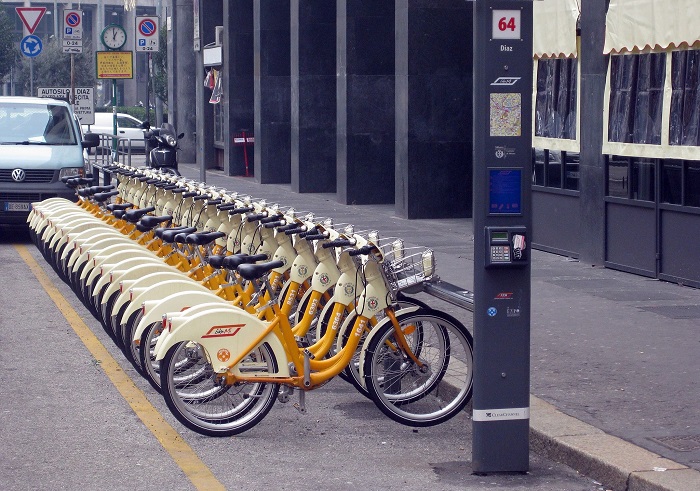Bike-sharing may soon be coming to Calgary, reports say
The Alberta city may join Vancouver, Toronto, Montreal, and other Canadian cities by introducing bike-sharing as early as this summer.


Calgary, reports say, may soon be the latest city in Canada to introduce bike-sharing to local riders and commuters, joining other cities across the country like Vancouver, Montreal and Toronto that have already implemented similar systems.
If all goes well, the system may become a reality — at the earliest — by summer, 2018.
According to Calgary’s website, bike-sharing is among 50 action items in the city’s approved Cycling Strategy — number 11 on the list, in fact — with the goal of “[providing] Calgarians and visitors with a quick and convenient mobility option throughout the Centre City.”
“Bike share,” the website’s description continues, “will help make Calgary’s Centre City more bicycle friendly and deliver on the vision of the Calgary Transportation Plan,” referring to a transportation initiative that was approved on September 28, 2009.
Speaking with the CBC and the Calgary Eyeopener, Tom Thivener, Calgary’s active transportation projects co-ordinator, described the Alberta city’s system as one that would use self-locking, dock-less bikes, accessed through app-based mobile technology. And while details need to be worked out, a launch date for such a system, he said, could happen by this summer — or the following summer at the latest.
Calgary bike-sharing would use “smart bikes that don’t require the stations to lock up to,” he said. “They work using an app on your smartphone to locate a bike. So you have to be a member, like Car2go. But once you are, you can locate a bike, walk up to the bike and basically unlock it using your smartphone.” Equipped with GPS tracking and an electronically-triggered wheel lock, anti-theft measures, he added, are built into the system.
“Essentially,” Thivener said, “[it would cost] $1 to $1.50 per half hour trip — half the price of a train trip.” Going forwawrd, he said, establishing protocols and a general pilot framework for the idea is the current priority.
“There’s so much demand, there’s so many calls coming in, and there’s so many companies launching across North America, we really need to set up the protocols right away. Let’s regulate. How many bikes can be rolled out at a time? Let’s define a pilot period.”
In related news, that demand is also spreading to other cities in western Canada. Vancouver’s U-bicycle, another app-based bike-sharing program, may soon be expanding from Victoria to Saanich, B.C., Victoria News reported. The Saanich bicycle and pedestrian mobility advisory committee recently explored the idea, recommending that the city ask the company whether they are “interested in making an application to operate in the District of Saanich.”
Kelowna, B.C., meanwhile, will roll out a fleet of 1,200 bikes when Dropbike, a bike-sharing service, comes to the British Columbia city this spring.
